| If you can't view the email, please click here. |
|
|
|
Winter 2018 Vol. 16 No. 4
|
|
From the Desk of the Editor
Süreya Martha Köprülü
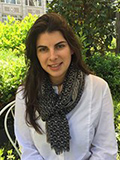
“Since the founding of the Turkish Republic, competing conceptions of Turkish identity have existed. Among many examples, the role of Islam has been contested, Kurdish and Turkish nationalisms have clashed, and various identity-based movements have ebbed and flowed, shaping political cleavages. National identity contestation has also spilled over into Turkey’s relationship with its Western allies, its patronage of the Muslim world, and the conceptualization of its role in the Turkic societies to its East.”
“In this issue of TPQ, our authors parse the underlying dynamics of ongoing identity struggles to better comprehend how they are contributing to a sense of deep insecurity among Turkish society and simultaneously influencing the country’s foreign policy axis. Some of the larger questions that animate this collection of articles include: To what extent are identity politics driving Turkish foreign policy? Is there a 'new nationalism' emerging in the post-coup era? What are the core components of Neo-Ottomanism? How is Atatürk’s legacy being contested and appropriated by Turkey’s main political parties? How is education increasingly being used as a tool to shape the identity of future generations? Is Turkey’s drift from the West permanent?”
|
|
The Syrian Conflict and the Crisis of Islamic Nationalism
Cenk Saraçoğlu
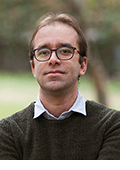
“The AKP’s reconfiguration of Turkey’s geographical sphere of influence is internally connected to its redefinition of national interests. In its new formulation of nationalism, the AKP defined national interest on the grounds of creating as powerful and influential a country as the Ottoman Empire and criticized the Kemalist’s ‘defensive’ stance in foreign policy and 'its regional policy of non-involvement' as being too passive and at odds with the historical interests of the nation.”
“Today, in the seventh year of the Syrian conflict, the AKP is entrapped in a vicious cycle emanating from the multitude of the problems in Syria that go beyond its capacity to fully control. The Syrian war was a testing ground for the credibility of Islamist nationalist project and neo-Ottomanism. The outcome of this test was an explicit disappointment on the part of the AKP that marked the unsustainability of relying solely on an Islamist nationalist ideological framework to shape Turkey's foreign policy in the Middle East.”
|
|
|
The Revival of Ottomanism in Turkish Foreign Policy:
“The World is Greater than Five”
Umut Uzer
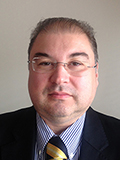
“Establishing closer relations with the Muslim World and Islamist movements has been a defining quality of the new Turkish foreign policy which has been emerging over the past 16 years. Turkey has tried to become a ‘game setter,’ very much determining the rules of international interactions in its region and beyond. The old regime has been criticized for being passive, and the new foreign policy is coming to terms with its past and its geography. Especially in the Middle East, Turkey wanted to create an alliance of like-minded countries.”
“The most potent symbol of Turkey’s soft power in the Middle East and the Islamic world especially among the Sunnis and in Africa, has been President Recep Tayyip Erdoğan. In those regions, he is perceived as the defender of Muslims and the oppressed against an imperialist West.”
|
|
|
Educating Turkey’s Students for Their Future, Not Our Past
Andreas Schleicher
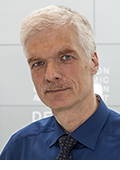
“While instruction in the past was subject-based, instruction in the future needs to be more project-based, building experiences that help students think across the boundaries of subject-matter disciplines. While the past was hierarchical, the future is collaborative, recognizing both teachers and students as resources and co-creators.”
“The Programme for International Student Assessment reveals great weaknesses among Turkish students in their capacity to extrapolate from what they know and apply this knowledge creatively in novel situations. For example, memorization strategies are still prevalent among Turkish students in PISA, but these are predictive only for performance of tasks with relatively limited complexity, precisely those tasks which are increasingly at risk of automation and digitalization. This is a decisive disadvantage in the modern world which no longer rewards students solely for what they know, but for what they can do with what they know.”
|
|
|
Headed East: Turkey’s Education System
Svante E. Cornell
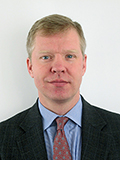
“Education reforms in 2010 made it possible to transform regular high schools into imam hatip schools; in 2012, this was made possible for middle schools as well. In March 2014, new legislation was adopted that provided the government with a mandate to overhaul the entire structure of the ministry of education, including terminating thousands of high-ranking officials, who could then be replaced by political appointees. The government claims that such processes only take place as a result of popular demand, but the record proves otherwise.”
“Erdoğan’s government faces a problem. If it is determined to expand religious schooling, it will likely have to do so in a coercive manner, against the wishes of the population, which seems to be motivated more by the quality of education than by acquiescing to the government’s efforts to strengthen the religious content of schools.”
|
|
|
Secularism and Atheism in the Turkish Public Sphere
Umut Azak
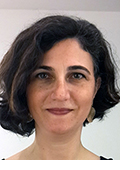
“Although atheism has been intrinsic to ideologies such as various interpretations of socialism, anarchism, or feminism, it has been very rarely asserted in the Turkish public sphere because of the risk of alienating the pious majority of the society. However, since the late 1990s, there has been a growing Turkish atheist presence on the Internet in the form of discussion groups with tens of thousands of members.”
“By opening a space for atheist and non-religious voices in the public sphere and fighting for equal civil and human rights, the Atheism Association represents a more radical diversion from the legacy of Republican secularism and a greater challenge to the recent policies of Islamization. It is on these grounds that the recent rise of atheist voices is vital to reformulating secularism for a future democratic Turkey.”
|
|
|
Dutch-Turkish Identity: A Very Dutch Affair
Yörük Bahçeli
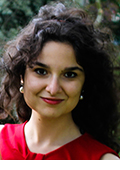
“Reflecting on the shift in the Dutch approach to integration, the Turkish diaspora has felt increasingly alienated from Dutch society, disengaged from traditional parties – citing deteriorating morale about their chances and life in the Netherlands – and isolated due to increased levels of discrimination.”
“While past Turkish governments had generally refrained from interfering with European Turks’ relationships with their local societies, Recep Tayyip Erdoğan made repeated calls for European Turks to preserve their Turkish identities and refrain from assimilating into European societies, emphasizing the maintenance of Turkish culture and belief.”
|
|
|
Shaping Peace Processes: A Comparison Between Turkey and Colombia
Mehmet Özkan
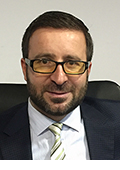
“In any peace process, there are always issues to spoil the process and it is always open to manipulation by day-to-day political developments. The success of Colombian case is that, to a large extent, both sides succeeded in isolating the peace process from political diversions. This element has been absent in the Turkey/PKK case, which may have a direct impact on the destiny of negotiations.”
“Perhaps different from Colombia, in Turkey’s peace process, there has been a lack of powerful actors leading the negotiation process. From the Kurdish side, Öcalan seemed to be the most powerful figure; however, influential figures in the mountains like Murat Karayılan tried to co-opt the process rather than implementing what was agreed on. Similarly, on the government side, there was an ongoing conflict between Erdoğan and then government allied Gülen movement (now recognized as Fethullah Terrorist Organization- FETÖ) over controlling the bureaucracy.”
|
|
|
Gender Politics and GONGOs in Turkey
Çağla Diner
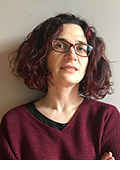
“One of the most important conduits that AKP leaders use to create and disseminate a discourse on gender in line with their religious and conservative worldview is civil society organizations. The two most prominent of these organizations are the Woman and Democracy Association (Kadın ve Demokrasi Derneği, KADEM) and the Youth and Education Service Foundation (Türkiye Gençlik ve Eğitime Hizmet Vakfı, TÜRGEV). These civil society organizations fit into the definition of what scholars call Government-Organized Non-Governmental Organizations (GONGOs).”
“In Turkey’s highly controlled domestic environment, it is difficult for the independent media and civil society to survive. Therefore, it is not easy for feminists to counteract AKP’s attempts that co-opt civil society and open up a space for its conservative gender discourse. As many women’s organizations acknowledge, the only thing they can try to do in this environment is to resist the government’s regressive policies on women’s rights and prevent the significant backsliding of the previous decades’ positive developments.”
|
|
|
How Can Akşener’s İyi Parti Contribute to Turkey’s Democracy?
Ödül Celep

“The İyi Parti emerges with high, perhaps exaggerated, expectations for its performance within some political circles. The party is expected to become a game changer at the cost of the AKP and a challenger to President Erdoğan with a new, charismatic leader on the political stage. Nevertheless, what truly matters in this context is not the İyi Parti’s short-term, practical purpose of breaking up the AKP and Erdoğan’s power. What should matter most is the extent to which the İyi Parti can contribute to Turkey’s democracy in the long run.”
“If Akşener truly intends to maintain the revolutionary nature of her party, the next obvious step should be to decidedly leave the entire MHP legacy behind. Early signs, such as her decisions not to campaign with Türkeş posters and giving up certain hand salutes of MHP idealists are positive, yet not sufficient. Both Türkeş posters and the gray wolf salutes are strong symbols of the MHP legacy, which would upset the İyi Parti’s intentions to create a centrist, moderate political actor.”
|
|
|
The Danger of No Peace, No War in Nagorno-Karabkh
Najiba Mustafayeva
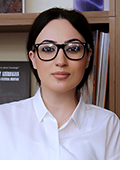
“The Nagorno-Karabakh conflict remains the region’s biggest threat to peace and security, as well as the key obstacle to the solid cooperation and development in the South Caucasus. The four-day war altered the perceived frozen status of the conflict and proved that this no peace, no war situation is dangerous.”
“For the past quarter of a century, the OSCE Minsk Group has led efforts to advance a peace settlement, however, little headway has been made on delivering peace and stability to the region. Obstructed by problems such as a lack of commitment, a focus on conflict management instead of conflict resolution, and the intergovernmental nature and rotating chairmanship of the organization, the OSCE is failing to address outbreaks of violence in the conflict.”
|
|
|
Social Repression in a Democracy: The Case of Tunisia
Guillaume Allusson

“The Tunisian case represents a complex but interesting one to study the contradiction between its recently free political environment and the socially repressive measures that persisted after the revolution. In Tunisia, democratization is not synonymous with the respect of civil liberties and can, on the contrary, foster the repression thereof.”
“Conservative Muslims tend to see homosexuality as a gross perversion and blasphemy as a major offense to their religious identity, and leniency towards these issues can contribute to alienating and radicalizing numbers of citizens. It is, therefore, possible to argue that the Tunisian government holds a security interest in ensuring that homosexual behaviors, as well as speeches and actions deemed as insulting Islam, are not only penalized but also punished harshly.”
|
|
|
Interested in contributing an op-ed to TPQ's blog?
For guidelines click here. |
|
|
The Premium Corporate Sponsor of this Issue
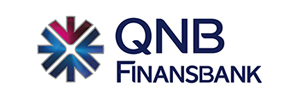 |
|
|
Thanks to Our Media Partner |
 |
|
|
 |
Phone: +90 212 621 4442 - +90 212 621 9258 Fax: +90 212 531 8718 info@turkishpolicy.com
Click to unsubscribe |
|
|
